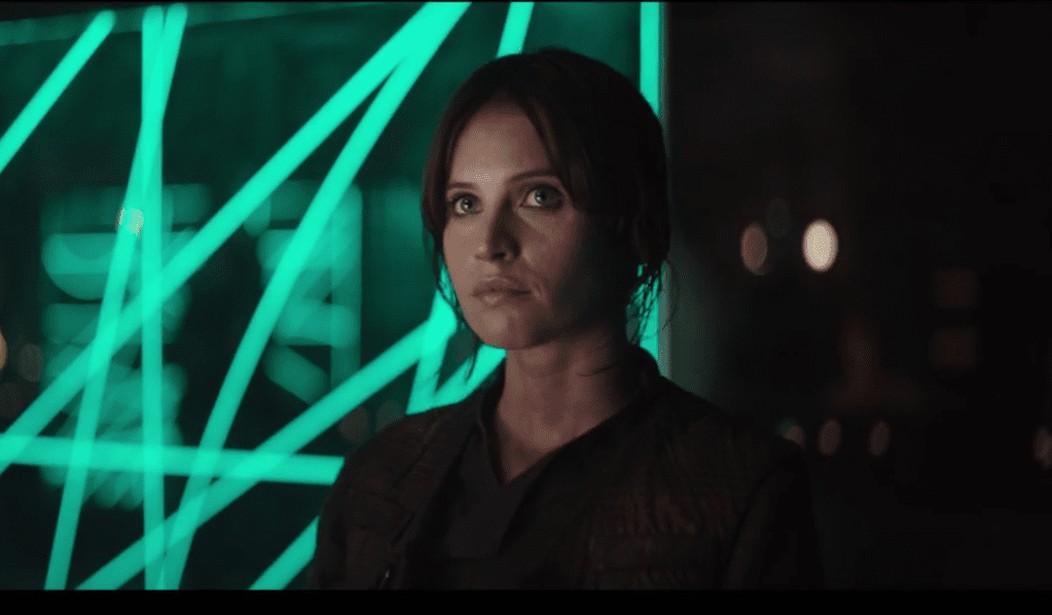[No Rogue One spoilers]
The new Star Wars entry, Rogue One, is an efficient little money maker, but the only genuine emotion it inspires is nostalgia. Like a big bang expanding into stagnancy, the original trilogy gave off an explosive energy that has now dissipated to nothing. The franchise seems to me empty of any inspiration but greed. In some ways, this was built into the structure of the enterprise.
Star Wars marked a change in the movie industry and started it down the path to this moment when the big screen is nearly exclusively reserved for gigantic effects-driven tentpole pictures and franchise sequels. But the film couldn’t have effected such a change if it hadn’t tapped into something that had already changed in the culture.
Most countries have a national mythology that harkens back to the legendary-historical moment when might could be employed in defense of right. The Trojan War, knights in armor, samurais, cowboys and Indians, and to some degree World War II all provided generations of boys with mythic masculine role models based on reality. Such legendary national histories fed the boy daydream of engaging in physical combat on the side of righteousness and thus connected boys not only to their own aspirations toward courage and heroism but to their own nation, their own culture.
Star Wars was different. Based to some degree on the work of mythographer Joseph Campbell, it was consciously constructed as a psychological myth, an interior story about a boy choosing between the evil Darth father within himself and the good Obi one, between the violent impulses of manhood and the masculine mental energy of creativity and righteousness. Though the politics of the original trilogy was reminiscent of the revolutionary beginnings of the U.S., it required no real-world moral judgements. A boy who plays at cowboys and Indians is learning that civilization is better than primitivism and will ultimately have to come to terms with the grey areas that exist when civilization rises, as it inevitably does, on the ruin of primitive lives.
A boy who plays at Star Wars, on the other hand, is really learning the inward lesson of coming to terms with himself — an important lesson no doubt, but one that leads him to no necessary conclusions about the world in which he lives. In Stars Wars, good is better than evil, sure, but there is no bridge that links the galaxy far, far away with our specific nation and culture. In fact, when George Lucas tried to give the series a real-world political application, he produced a second trilogy so excruciating, it was rightly and hilariously lampooned on The Simpsons as an unbearable snooze-fest.
There’s a reason for this. The journey of coming to terms with oneself is a child’s journey. Complete the journey successfully and you should then be ready to move on to engage with the complexities of the real world. The first Star Wars trilogy took us through that myth completely. Dramatically speaking, there is now nothing to do with it but plug black guys and women into the old roles in the hopes that will make the franchise seem as diverse as it is psychologically meaningless.
Science fiction is, I think, more relevant than it has ever been. The future is coming upon us so quickly that knights and cowboys and samurais may seem impossibly out of date. But I can’t help suspecting that the ceaseless leftist cultural assault on our patriotism and our commitment to western values has also done its part to deprive us of the kind of history-based role models we need to connect us to the culture that sustains us.
That’s too bad. Human nature being what it is, it’s a good bet that, in some important ways, the battles of the future are going to look very much like the battles of the past.









Join the conversation as a VIP Member